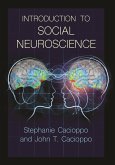Philosophers and neuroscientists address central issues in both fields, including morality, action, mental illness, consciousness, perception, and memory. Philosophers and neuroscientists grapple with the same profound questions involving consciousness, perception, behavior, and moral judgment, but only recently have the two disciplines begun to work together. This volume offers fourteen original chapters that address these issues, each written by a team that includes at least one philosopher and one neuroscientist who integrate disciplinary perspectives and reflect the latest research in both fields. Topics include morality, empathy, agency, the self, mental illness, neuroprediction, optogenetics, pain, vision, consciousness, memory, concepts, mind wandering, and the neural basis of psychological categories. The chapters first address basic issues about our social and moral lives: how we decide to act and ought to act toward each other, how we understand each other's mental states and selves, and how we deal with pressing social problems regarding crime and mental or brain health. The following chapters consider basic issues about our mental lives: how we classify and recall what we experience, how we see and feel objects in the world, how we ponder plans and alternatives, and how our brains make us conscious and create specific mental states.
Dieser Download kann aus rechtlichen Gründen nur mit Rechnungsadresse in A, B, BG, CY, CZ, D, DK, EW, E, FIN, F, GR, HR, H, IRL, I, LT, L, LR, M, NL, PL, P, R, S, SLO, SK ausgeliefert werden.









